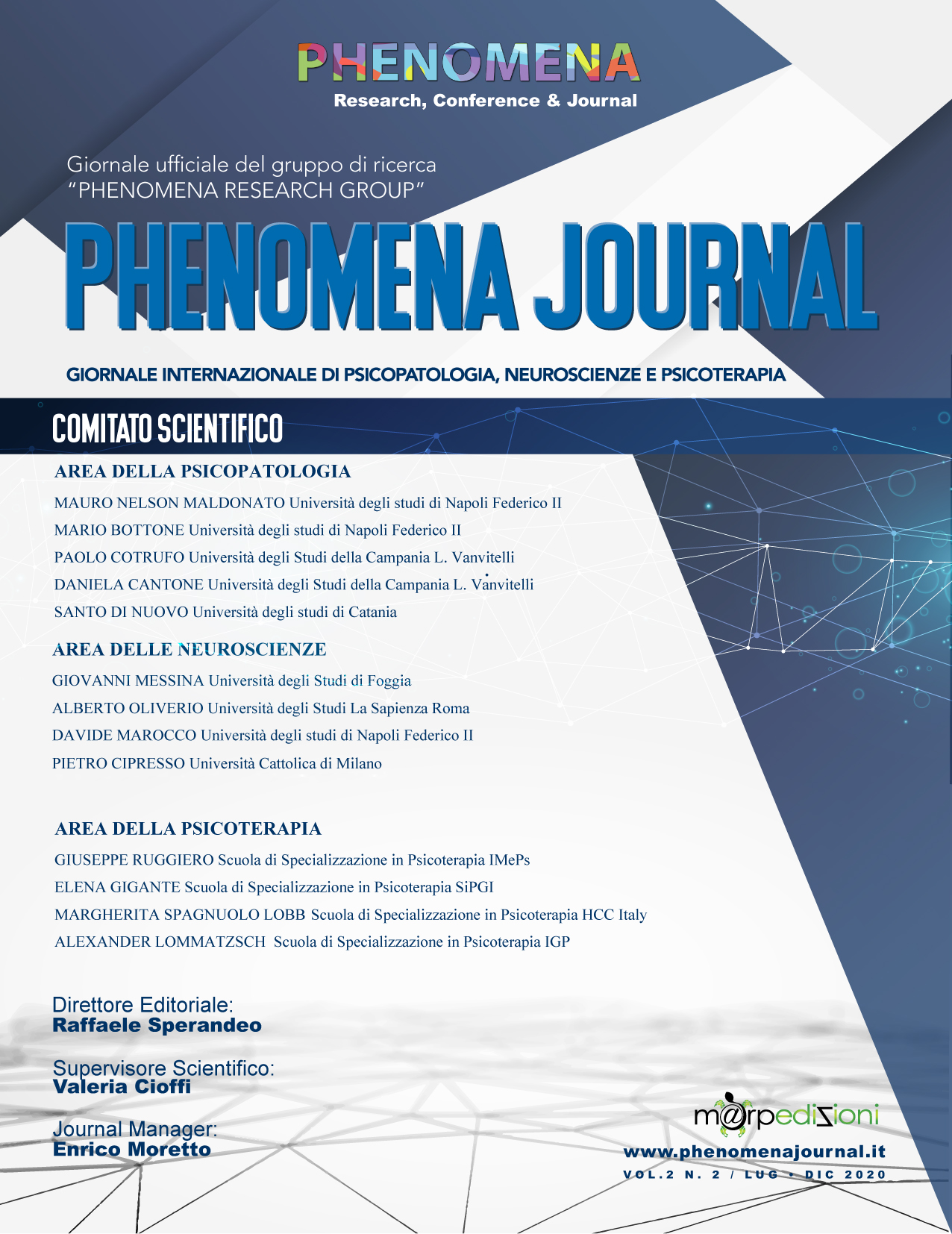Published 2020-09-03
How to Cite
Abstract
The paper presents the results of qualitative field research about the phenomenon of NEETs - Not (engaged) in Education, Employment or Training - investigated with the constructivist Grounded Theory methodology. The research, which involved 82 young people aged between 18 and 24 years, began in November 2015 and ended with the analysis of data collected in December 2018. In line with the methodological indications of the constructivist Grounded Theory (GT) (Charmaz, 2000, 2006, 2014), field research was immediately accompanied by open coding, using all that was useful for saturation of the categories.
The constant critical reflection, conducted throughout the process of my research, has led to detect and define 3 core categories that are fundamental to the definition of a substantive theory. The permanent orientation emerges as a social need because it promotes and increases the psychological well-being of NEETs. The comparison between the “initial” questions of research and the 3 core categories, conceptually valid, allowed me to start the process of focusing and analyzing the possible correlations. Correlations capable of supporting a scientifically strong definition, for the proposal of a substantive theory, emerging from the three initial questions of the research.
1. How do you “selfassess” NEETs with respect to the world of work? Psychological area: to understand the characteristics of the NEET individual. How to contribute to its identity awareness about operating (occupying and acting) a role. To train him/her to reflect on his/her own interests, in accordance with his/her own authentic purposeful Self (Di Fabio, 2014).
The question aims to understand how:
a) to increase the capacity to make choices (Self confidence in decision making);
b) to make them feel/perceive that they are ready (Self efficacy and Self capability);
c) to raise the skills to manage problems (Self-empowerment and problem solving).
2. How do NEETs live their “condition”? Psychosociological area: to investigate the context and environment of NEETs’ life. The answers to this question must allow them to understand what they are, first and foremost:
a) the causes to which they attribute their current NEET situation (external/internal);
b) the roads they would like to take to move towards work (Self orientation);
c) their thoughts and attitudes towards current social policies (active/passive).
3. How do you represent the labour market? Sociopsychological area: relationship aspect; ability to stay in relationships. In the answers you want to understand:
a) what they thought when they were at school in the world of work (imagination about their own future);
b) how their thoughts on the world of work are today compared to those years (alignment to their own reality).
c) what knowledge, what information they possess of the working possibilities of their territory (awareness of employment opportunities).
Keywords: NEETs, Self-empowerment, purposeful Self, Self orientation, resiliency, decision making.

